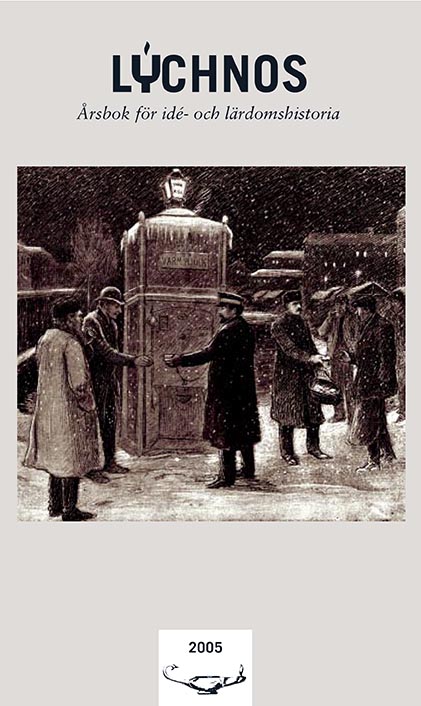Raw vegetarian food and life reform
Maximilian Bircher- Benner and the Swedish health foods movements
Abstract
Movements for life reform, natural healing, and health foods have persisted in Sweden since the last decades of the 19th century. Stressing the importance of less alcohol and other drugs, a proper diet, and the use of natural healing methods, they have displayed conflicts concerning individual rights to decide in matters concerning one’s own body and health in relation to a conventional medicine and state demands. Swedish movements for natural healing and health foods have developed under influence from leading figures and movements in Sweden, Germany, Switzerland, North America, and England.
In 1900, the Swiss physician Maximilian Bircher-Benner (1867–1939) launched his theory of ”sunlight food”, meaning that uncooked vegetables and fruits were containing the most energy, whereas meat was radically less nourishing. His theories were contrary to contemporary medical and bourgeois culture considering meat as the optimum food, at least for real men. He became an outsider in medicine until the discovery of vitamins in the 1920s lent him some support. His clinic ”Lebendige Kraft” in Zürich received well-to-do clients from all over the world; these were treated with different physical methods, raw vegetarian food, and proper routines for day and night.
Stressing the importance of raw vegetarian food, Bircher-Benner influenced vegetarians and food reformers in Sweden during the 20th century. In the 1930s, especially women with connections to the Swedish vegetarian association, founded in 1903, recommended his philosophy of food and natural healing. Menus copied from his books were used in health resorts, vegetarian pensions, and restaurants. But during the decades around World War II, Are Waerland dominated the Swedish health-food scene, demanding adherence to his very restrictive health food programme. The post-war health movements drew on both Waerland and Bircher-Benner in their food recommendations.
This article proposes factors facilitating or counteracting a broader acceptance of Bircher-Benner’s ideas in Sweden. Health resorts and strong lay traditions in the health care field have maintained a tradition of non- invasive and non-pharmacological healing methods. A strained relationship between medical doctors and lay vegetarian spokesmen have made a more serious discussion of the topic difficult. Political associations tied to natural healing in Germany during the 1930s have affected the debate and have probably also restrained a broader acceptance of these ideas. Today, scientific studies have resulted in official nourishment recommendations similar to a previously launched ”health food”.
Downloads
Published
Issue
Section
License
This work is licensed under a Creative Commons Attribution 4.0 International License. The copyright for the work published in Lychnos remains with the authors.


